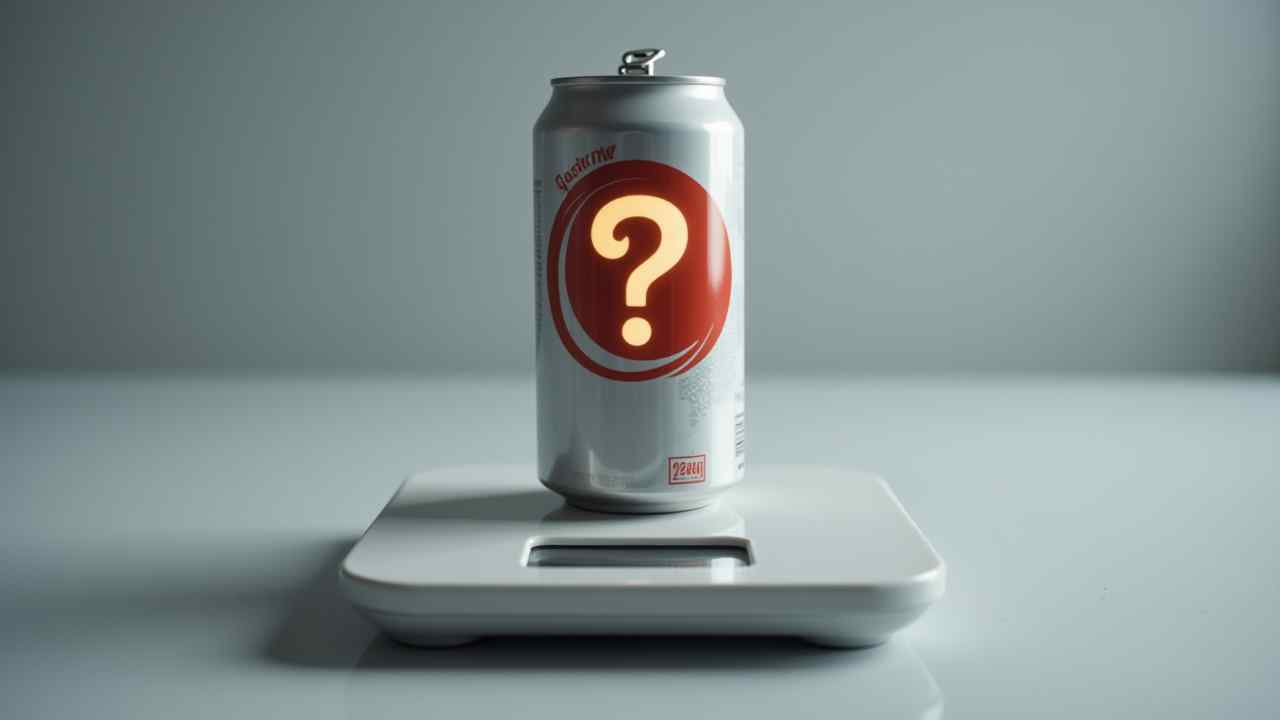
⚖️ Will Drinking Diet Soda Make You Gain Weight? A Scientific Look
⚖️ Will Drinking Diet Soda Make You Gain Weight? The Science Explained ⚖️
It is one of the most persistent questions in the world of nutrition. It seems like a paradox. How can a drink with zero calories cause you to gain weight? The debate is intense. So, will drinking diet soda make you gain weight?
This question has left many consumers feeling confused. On one side, simple math says no. On the other, headlines often suggest a link between diet drinks and obesity. The truth is nuanced and requires a closer look at the science.
This guide will explore the evidence. We will look at the direct caloric impact. We will also examine the theories about how artificial sweeteners might indirectly affect your weight. Let's find a clear answer. 🤔
🤔 What is the Direct Caloric Impact of Diet Soda?
From a direct, scientific standpoint, the answer is no. The fundamental law of weight management is energy balance. This is also known as "Calories In vs. Calories Out." To gain body fat, you must consume more calories than your body burns.
Diet sodas contain zero, or close to zero, calories. Because of this, they cannot directly provide your body with energy to store as fat. The drink itself does not contain the building blocks for weight gain. This part of the science is undisputed.
In fact, for many people, diet sodas are a tool for weight loss. If you swap a 150-calorie sugary soda for a zero-calorie diet soda, you save 150 calories. This simple change can lead to weight loss over time.
🧠 What Are the Indirect Ways Diet Soda Might Influence Weight?
The controversy starts when we look at the indirect effects. While diet sodas lack calories, they contain high-intensity artificial sweeteners. Some researchers have theories about how these might influence your body. These are the main points of debate.
Does it Affect Your Brain and Cravings?
This is a leading theory. Artificial sweeteners are hundreds of times sweeter than sugar. This intense sweetness without the expected calories might confuse your brain. It could disrupt the body's natural link between a sweet taste and energy.
For some individuals, this might increase cravings for other sweet, high-calorie foods. If drinking a diet soda makes you more likely to eat a donut later, it could contribute to weight gain. This is a behavioral effect, not a direct one.
Does it Impact Your Gut Health?
Another area of emerging research is the gut microbiome. Some studies suggest that certain artificial sweeteners can change the balance of bacteria in your gut. An unhealthy gut is linked to many metabolic issues. However, this research is still developing.
📈 What Do Large Human Studies Tell Us?
This is where things can get confusing. Some large observational studies have found a correlation. They show that people who drink a lot of diet soda have a higher likelihood of being overweight. But does this mean the diet soda is the cause?
Not necessarily. This is a classic case of correlation not proving causation. It could be due to "reverse causation." For example, people who are already gaining weight are more likely to switch to diet sodas. The diet soda is a reaction to the weight gain, not the cause of it.
So, when you ask, "will drinking diet soda make you gain weight?" the answer is not a simple yes or no. The drink itself does not cause weight gain. However, for some people, it might influence behaviors that do. For most, it remains a helpful tool to reduce sugar intake. 🥤